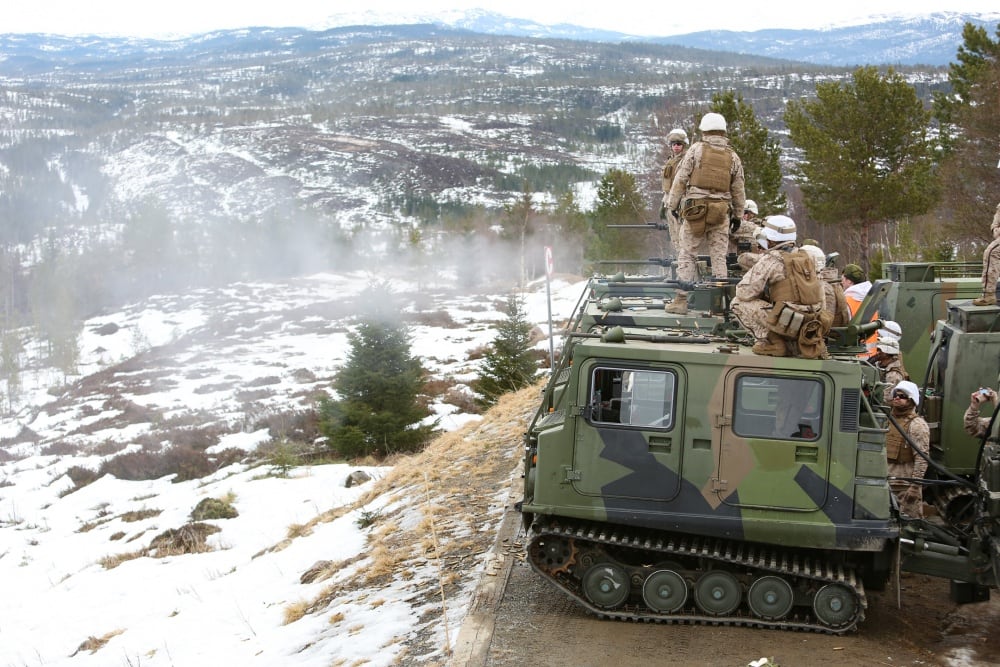A new rotation of Marines is expected in Norway in the coming weeks as the Corps continues to prep its forces for a potential cold-weather fight with North Korea or Russia.
Roughly 300 Marines from the 1st Battalion, 6th Marine Regiment based out of Camp Lejeune, North Carolina, will soon replace the small contingent of Marines from 2nd Battalion, 2nd Marines in Norway, according to Marine spokesman 1st Lt. Brett E. Lazaroff.
The current rotation in Norway has been in country learning how to fight and survive in an extreme cold-weather climate; they will wrap up a nearly 6-month deployment in the next few weeks.
The new rotation from 1/6 will be the third six-month rotation for Marines to the fellow NATO allied country.
Commandant Gen. Robert B. Neller has recently upped the ante on cold-weather training for the Corps as the force anticipates a looming battle ahead.
While the Marine rotation to Norway has been relatively small, the Arctic country is gearing up for a major NATO exercise this fall called Trident Juncture.
Neller recently described the exercise as one of the largest and first of its kind before lawmakers at a Senate Armed Services Committee hearing on Wednesday.
The large-scale military training event will involve nearly 35,000 troops from more than 20 countries, Lazaroff told Marine Corps Times. The event will culminate with a command post exercise in Naples, Italy, slated for November.
A cold-weather focus is something the Corps hasn’t had in a while, Neller said during a discussion at the Center for International and Strategic Studies in January.
Marines and their equipment, including aircraft, have been subjected to extreme cold-weather training across the states and in other allied countries like Norway, Sweden, Germany and South Korea over the past year.
Training has included everything from skiing, fighting in the snow and the use of over-the-snow vehicles like the Corps’ BV-206.

It’s essential training to ensure Marines are educated on the constraints and difficulties that come with fighting in cold weather.
The extreme cold in places like North Korea and Russia can have major impacts on the lethality of various weapon systems and the morale of troops bogged down in the frigid terrain.
Cold weather dampens the blast impact of shoulder fired rocket systems, grenades and mortars. It can also reduce the range of these weapon systems.
Shawn Snow is the senior reporter for Marine Corps Times and a Marine Corps veteran.





